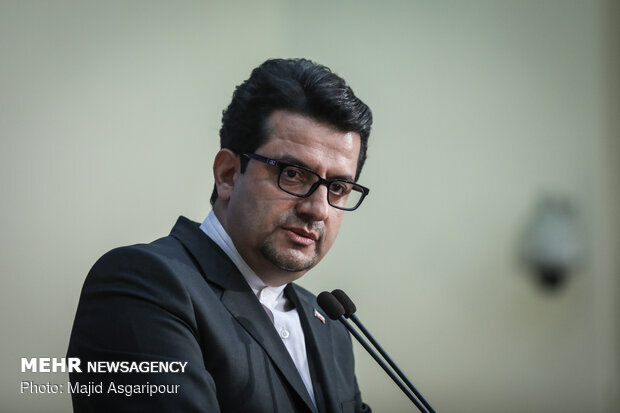Tehran: Trump has no business talking about culture, national identity

TEHRAN — Foreign Ministry spokesman Abbas Mousavi says he was not surprised when the U.S. president, who only knows how to run cabarets, said his administration had identified 52 cultural sites in Iran to strike.
“I was not surprised when Trump admitted to targeting 52 [cultural] sites; a president who only knows how to run cabarets has no business speaking about culture and national identity,” Mousavi said on Monday.
“As each person is recognized with his/her identity, nations are also recognized with their national identity in the world stage,” he said.
Mousavi said Iran’s diplomacy is based on its national and historical identity.
Trump tweeted on January 4 that his military would strike “very important” targets related to Iran if the Iranians attempted to take retaliatory action against the U.S. for the assassination of top General Qassem Soleimani, in the Iraqi capital Baghdad on January 3.
Iran embraces hundreds of historical sites such as bazaars, museums, mosques, bridges, bathhouses, madrasas, mausoleums, churches, towers, and mansions, of which 22 being inscribed on the UNESCO World Heritage list. Under the 2025 Tourism Vision Plan, the country aims to increase the number of tourist arrivals from 4.8 million in 2014 to 20 million in 2025.
“Military threats definitely cannot deter us from our historical ideal of peace and dialogue,” Mousavi said.
“If we see that the Islamic Republic of Iran is the proposer of peace, dialogue among civilizations, a world free of violence and good relations with neighbors, it comes from the Iranian identity,” the spokesman added.
The U.S. administration of Donald Trump has put enormous pressure on Iran, especially after Trump unilaterally quit the nuclear deal in May 2018 and introduced the harshest ever sanctions in history on Iran as part of his administration’s “maximum pressure” strategy against Iran.
In response to this move, on May 8, 2019, Iran announced that its “strategic patience” is over and started to gradually reduce its commitments to the JCPOA at bi-monthly intervals. At the time Iran announced if the European parties to the deal take concrete steps to shield Iran’s economy from the U.S. sanctions it will reverse its decision.
Tensions between the two countries reached its peak on January 3, when General Soleimani, Iran’s top anti-terror commander, was assassinated in cold blood under the direct order of Trump.
Iran retaliated in January 8 by attacking an important U.S. base in Iraq with dozens of missiles.
MH/PA
